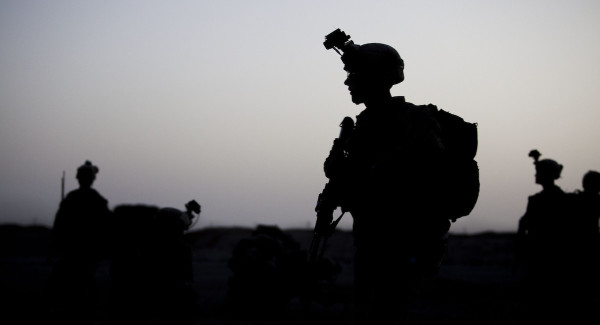

WASHINGTON (Reuters) – President Donald Trump said on Thursday that U.S. troop levels in Afghanistan were being reduced to 8,600 but that American forces would remain in the country even if Washington reaches an agreement with the Taliban to end the 18-year war.
“Oh yeah, you have to keep a presence,” Trump said in an interview with Fox News radio. “We’re going to keep a presence there. We’re reducing that presence very substantially and we’re going to always have a presence. We’re going to have high intelligence.”
Trump said the U.S. force level in Afghanistan was being reduced to 8,600 “and then we make a determination as to what happens.” Some 14,000 U.S. service members are currently in Afghanistan, among whom about 5,000 are dedicated to counterinsurgency operations.
The Taliban said on Wednesday it was close to a “final agreement” with U.S. officials on a deal that would see U.S. forces withdraw from Afghanistan in exchange for a pledge that the country would not become a haven for other Islamist militant groups.
“We hope to have good news soon for our Muslim, independence-seeking nation,” Suhail Shaheen, a spokesman for the Taliban’s political office in Doha said.
Both U.S. and Taliban negotiators have reported progress in their talks in recent weeks, raising the prospect of an end to the conflict. Zalmay Khalilzad, the U.S. special representative for peace in Afghanistan, was due to travel from Doha to Kabul this week for a meeting with Afghan leaders.
The United States invaded Afghanistan in 2001 and ousted its Taliban leaders after they refused to hand over members of the al Qaeda militant group behind the Sept. 11 attack on the World Trade Center and the Pentagon.
On Wednesday, the top U.S. military officer, Marine General Joseph Dunford, told reporters that it was too early to talk about the future of U.S. counterterrorism forces in Afghanistan.
“I’m not using the ‘withdrawal’ word right now,” the chairman of the Joint Chiefs of Staff said at the Pentagon.
“I honestly think it’s premature to talk about what our counterterrorism presence in Afghanistan may or may not be without a better appreciation for what will the conditions (be),” Dunford said.
Dunford said that in the current security environment, local Afghan security forces needed U.S. support to deal with the violence.
“If an agreement happens in the future, if the security environment changes, then obviously our posture may adjust,” Dunford said.